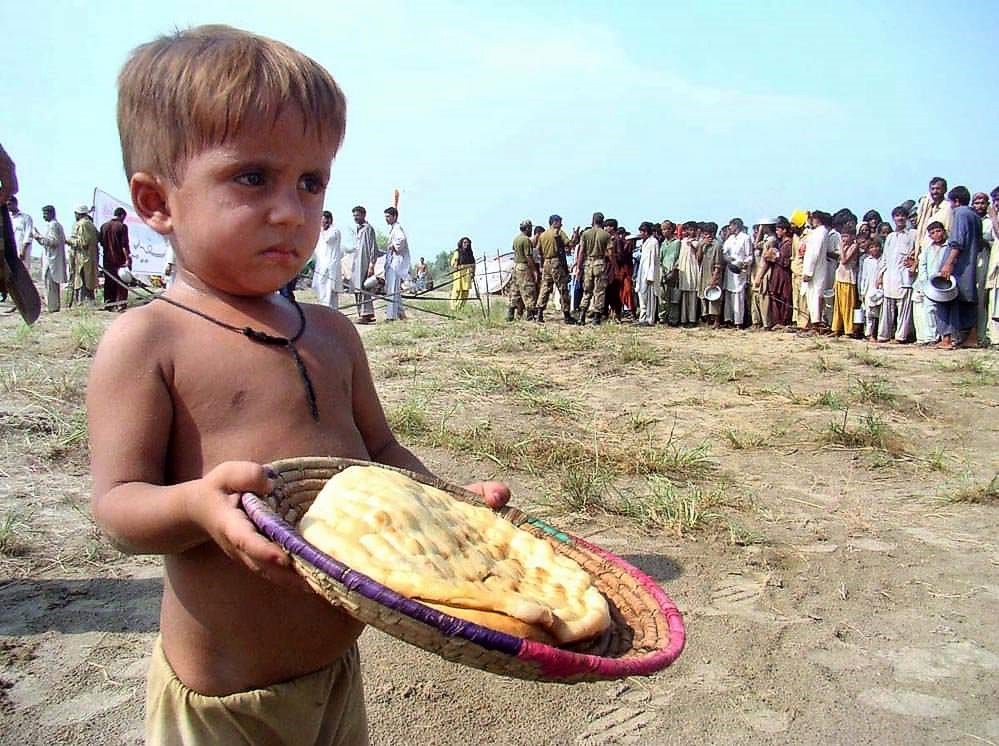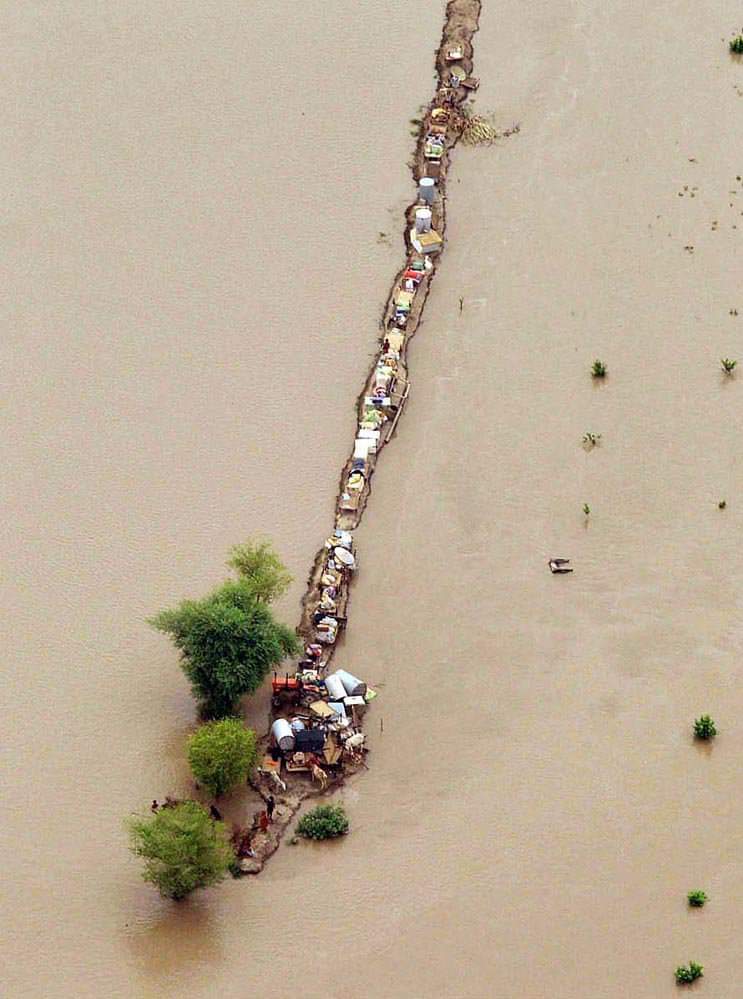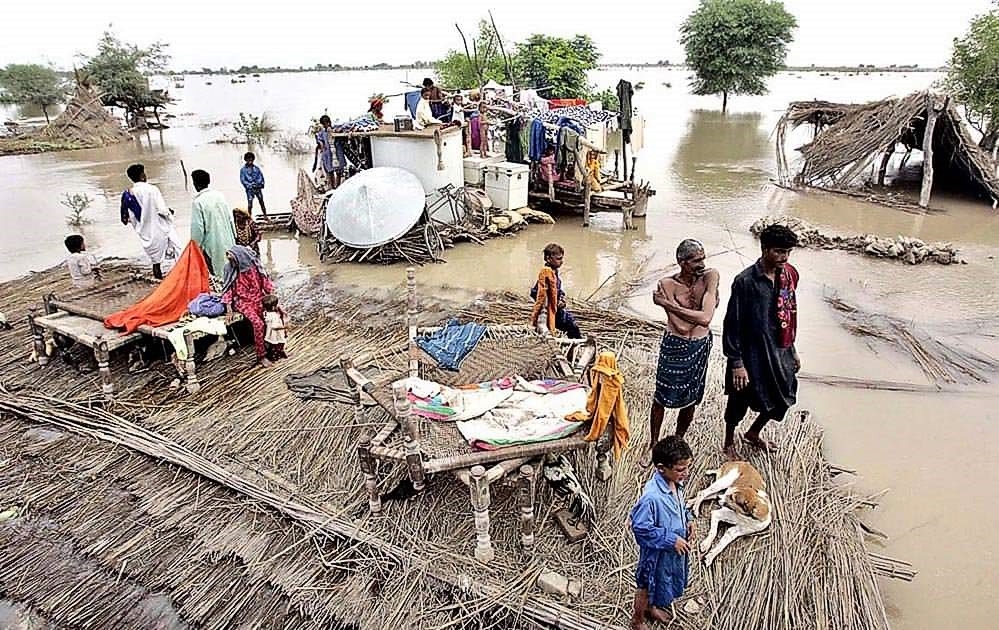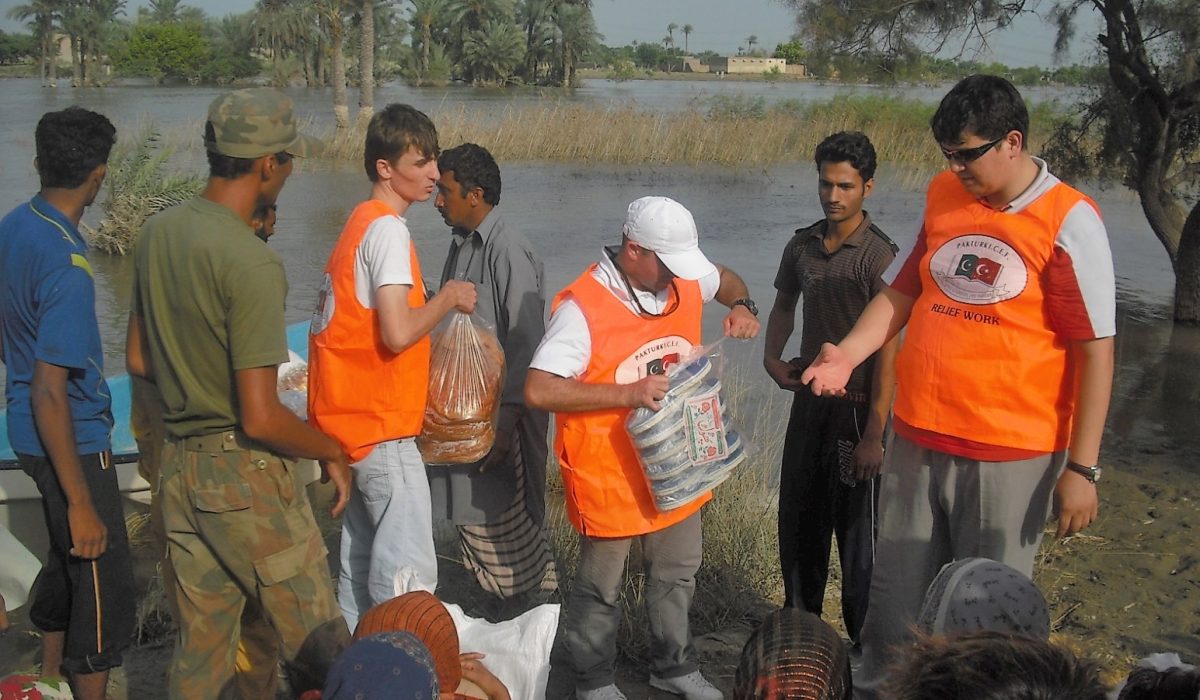The massive flood disaster and the first aid from PakTurk

What good is food without ‘Masala’?
January 24, 2022
Addictive Pakistani food, desserts and drinks
January 28, 2022Educationist Taner Koçyiğit wrote about the flash-flood in 2010, one of the most devastating natural disasters in the history of Pakistan, and why the destruction had been so overwhelming. Koçyiğit also explained how the PakTurk Schools had been first to reach the disaster zone and what the PakTurk volunteers encountered.
Part Thirty-One:
Between May and August every year marks the famous monsoon season in Pakistan. During this period, large and small floods occur in different parts of the country. These floods would make the headlines in the international media. However, as it was a usual event in Pakistan, it would not get much coverage in the local media and we would not hear about it much. A few times over the years, my family or friends from Turkey used to call and say, “Is everything alright? We heard about such-and-such flood and great loss of life!” Often, we would hear the news of the flood from them. Since urbanization and city infrastructures follow certain standards in developed countries, loss of life takes place only in massive floods. In countries like Pakistan, where almost 70 percent of the population lives in rural areas and in makeshift adobe houses, people lose their lives even in small-scale floods. The sewage systems, which occasionally failed to deliver even in big cities, did not exist in rural areas back when I was there. People struggle to live in their houses built near riverbeds or any place allotted to them in the rural areas.

In Pakistani villages, people usually live in adobe houses they build on small plots allotted to them by landlords. As we often witnessed, the villagers would cultivate the small patches of land in front of their houses or in nearby fields, take care of their few livestock, and struggle to make a living with a sack of broken rice or other provisions the landlord might give once a year at the beginning of Ramadan. The villagers, who work in the fields of the landlord all year long with no social rights and add wealth to his wealth, are unfortunately a bitter reality of the country. During the reign of the British Raj, which lasted for about 90 years, the rulers shortlisted the fertile lands and all who lived and worked on those lands and handed them to the local influential. saying “Here, these are yours from now on!” The British said they abolished the ‘caste system’ in the Subcontinent but did not touch the ‘feudal system’, which is almost no different. This system, created to control the people living in rural areas back then, settled over time with people living in those lands being forced to serve the landowners to survive.
No one expected such a massive flood
The fertile lands in the rural areas, where there is stark social injustice, owes these characteristics to the five great tributaries of the Indus, which springs from the Himalayas. The Punjab province gets its name from the Persian word ‘paanch aab’, meaning ‘five waters’. This system negatively affected the country’s road, bridge and infrastructure development. Cities were established and expanded without adequate planning and feasibility studies in the early days, and villages and towns were shaped according to the wishes of the landlords or the people in power. Again, because of negligence, the urgent rehabilitation of the rivers was not carried out, and measures were not taken to keep the water away from the settlements against a flood risk.

On the last days of July 2010, when Pakistan experienced a heat wave, we heard the news of the flash-floods in the northern provinces due to excessive rain, leaving hundreds of buildings destroyed, tens of thousands of people homeless, and claiming the lives of nearly a thousand people. We observed no problem in Lahore, where I lived back then, and the nearby cities. When we first heard the news, we thought it was a disaster affecting a limited region; yet, within a few days, we learned the flood from the north wreaked destruction across the central Punjab and northern Sindh, and left millions of people homeless, roads destroyed, and forced people to strive for survival amidst a great disaster.
Having realized the scale of destruction, we immediately rushed to help
We were very surprised, but also were not alone to be so. Almost none of our Pakistani friends and colleagues even imagined such a major flood disaster would strike. As we heard later, the Meteorological Department had forecast the rains to start on July 21 could cause a serious flood in the northern regions of the country and issued warnings the authorities in those provinces. But no warning had been issued given to the central and southern regions of the country, and many people were caught unprepared.
As soon as we heard from our local friends in Lahore about the magnitude of the flood being much higher than expected, we told the parents about our plan to deliver a truckload of food supplies to the affectees in various places. Coordinating with a few friends, on the morning of the third day after the disaster, we took two truckloads of food donated by the parents of our school and set off for Muzaffargarh, a district near Multan. Meanwhile, no international aid organizations had yet reached the flood zone. The relief teams from the Natural Disasters Management Authority were yet to arrive to the region. Since none of us witnessed a flood before, we had no idea what kind of situation we would face. We also did not have the technical infrastructure to help the flood victims. Unfortunately, we realized this when we arrived at the flood zone and saw nobody could move due to excessive flooding of vehicles and roads.
Flood survivors shouted in joy when they saw us
The roads were closed, hundreds of vehicles were stuck on the roads, and many vehicles were overturned. Worst of all, people had gone up to high hills and waited to access to some food or drinking water. Unfortunately, some of the aid trucks that arrived before us had been looted due to the lack of coordination and the helplessness of the people. That’s why we were warned about this many times on our way, and even the road was blocked by soldiers in one place. They told us, “You are not allowed to move forward from here. You must submit us all the relief material. Carrying out distribution under these conditions is not appropriate for your own safety!” They wanted to seize all the materials. When we told an officer we wished to deliver the materials to those in need, and that it was important to see the extent of the disaster to bring more help, the soldiers helped us. They allocated their military boats to us, gave us two personnel and helped us to take the aid to the villages not yet reached.

On a hill we reached in boats by moving over the roof level of the houses for about 10 minutes, we found nearly 100 people stranded. They cried for joy from the moment they saw us. When they saw the soldiers with us, they got in line and we continued to distribute to the flood survivors all the aid materials we could fit in the boat and rushed back to bring the second instalment of the relief materials right away.
That day, we distributed all the relief materials helped by the soldiers. Later, we again talked to the military personnel about our next aid programme and went to our school in Multan. We spent the night there because it would take about eight hours between Lahore and the flood zone as the roads were also destroyed. Thanks to our friends in Multan, they hosted us in the best way possible. The next day we returned to Lahore and told philanthropists about our observations. We mobilised ourselves for urgent humanitarian aid collection.
To be continued…
***
Part Thirty: The first fundraiser for the new school in Lahore





No Comment.